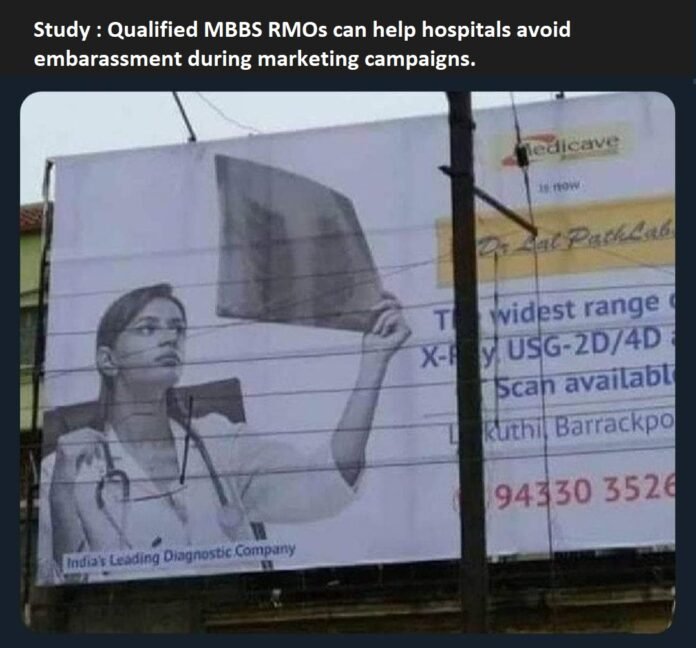Mumbai: Amid the growing demand for MBBS RMOs in the country, a recent census has set alarm bells ringing when it indicated that their population has been steadily and significantly declining over the years.
As more and more RMOs ‘fall prey’ to post graduation, super-specialization and work opportunities abroad, this wake-up call has prompted the Indian Healthcare industry to launch one of the world’s most ambitious conservation projects – ‘Save the RMO’, on similar lines as the successful ‘Save the Tiger’ project.
A panel set up by the government has recommended that as part of the ‘Save the RMO’ project, to lure and fool MBBS graduates, they will be given a minimum monthly ‘CTC’ of Rs. 1 lakh, along with permission to come late 5 days a week, no biometric punch-ins for attendance, free wi-fi, unlimited food, 5 star accommodation, etc – much like the election manifestos and freebies offered by most political parties before elections.
In an exclusive interview with the Quackdoses, Dr. K’abhi Matbann™, CEO of the Quack Multispeciality Hospital said, “With most MBBS graduates going into hibernation to prepare for the NEET PG exams immediately after their internship or working for only 4-6 months in an organization before taking their marriage or PG study break, it is getting extremely difficult for HR departments to find qualified RMOs to work in Emergency departments, ICUs and Wards. With almost every corporate hospital now suffering from scarcity of MBBS RMOs, and the number of RMOs decreasing day by day, we need to take preventive measures to ‘save their endangered species from getting extinct’. Our long term plan of this ‘Save the RMO’ project will be one of the finest examples in the annals of conservation globally. It will not be matched anywhere in the magnitude, scale and effort.”
Unconfirmed sources have claimed that the initiative has been welcomed by the freshly passed MBBS graduates, who have demanded that they will join as RMOs, only if the minimum basic pay is at par with the Internal Medicine Consultants.





























